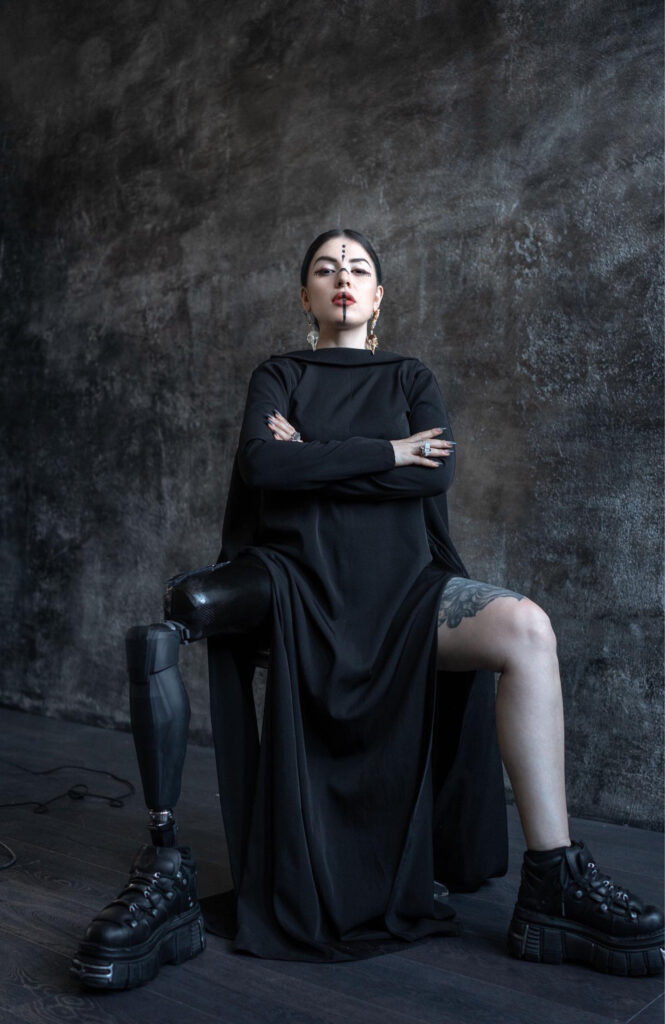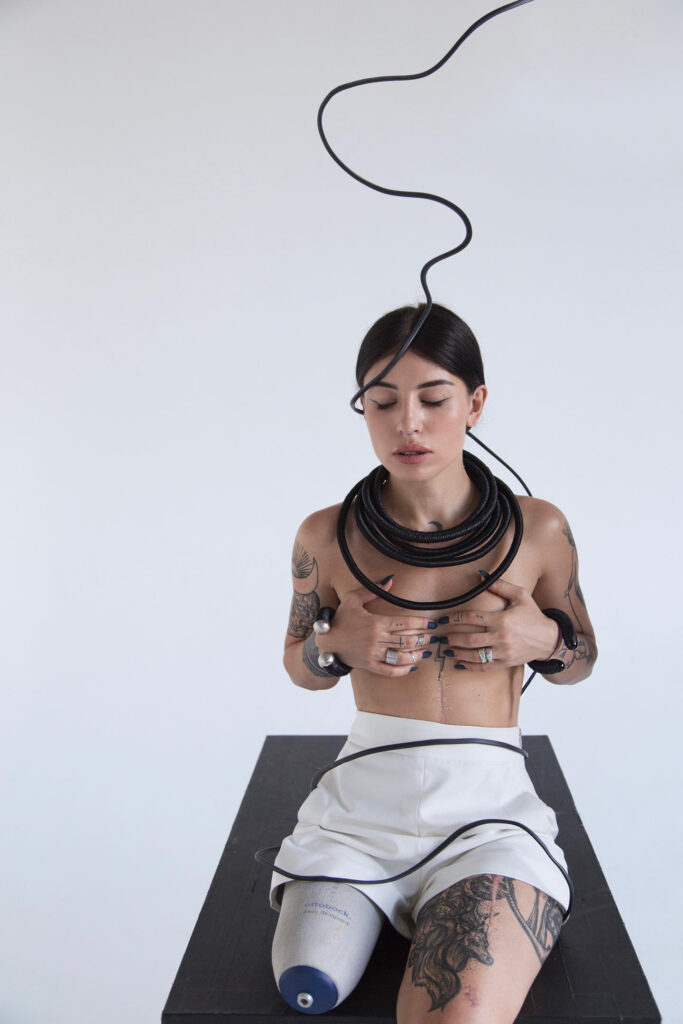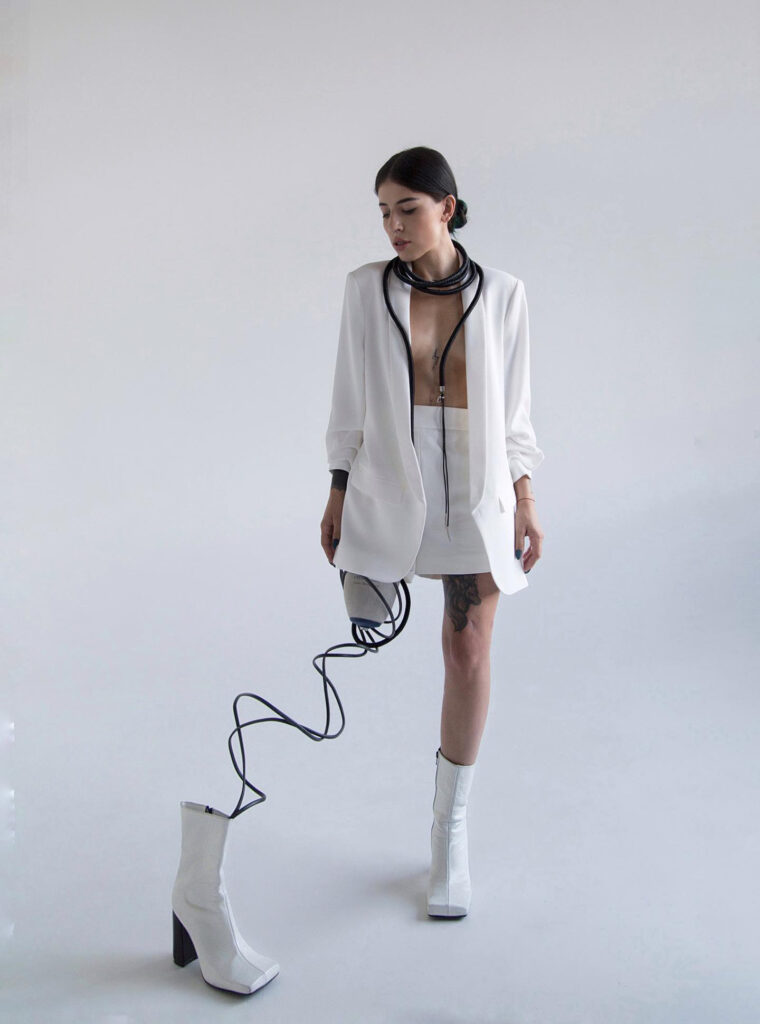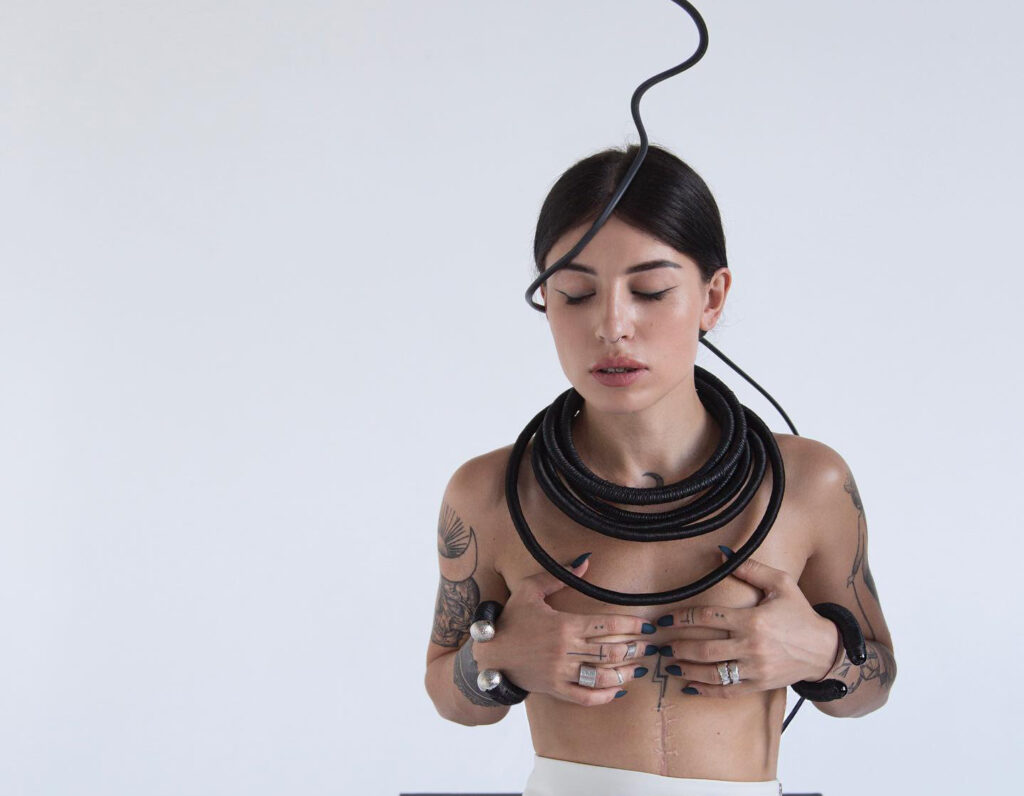
In 2017, Semmi Djabrail, a Russian-born model, writer, and human rights activist, experienced a devastating car accident that resulted in the loss of her right leg. Along with this life-altering injury, her entire body suffered severe damage, except for her arms, and she remained in a coma for six days. At that time, Djabrail anticipated a life confined to a wheelchair, but fate had different plans for her.
One year after the accident, Djabrail made the courageous decision to pursue a prosthetic limb. Through the support of her family, friends, and devoted Instagram followers, she managed to raise the necessary funds and sought out to embrace her new path in life. She fearlessly engaged in photo shoots, poured her thoughts into an inspiring blog, and shared her personal journey to raise awareness about individuals with disabilities. With an overarching goal to transform the public’s perception of those with disabilities, Djabrail has effortlessly redefined the concept of beauty. She views her prosthetic limb as an inherent and fashionable part of her identity, allowing her to boldly rise above adversity

Who is Semmi Djabrail?
I’m Semmi Djabrail and I’m originally from Dagestan, a small Islamic republic in Russia. I’m 33 years old. Everyone calls me a blogger because I have my own audience, but I’m more of a writer and human rights activist. Before the war, I worked as an inclusive model, finished writing my book, and created my own brand, but later, I lost absolutely everything because of my political position.
What has been on your heart and mind recently?
Lately, I’ve been feeling a deep disappointment in this life. I feel like there are no more ways for me to realize my potential again. I live in Korea and I am extremely saddened by how conservative the society is here. Everyone is concerned about my tattoos and my citizenship. I am a foreigner and I experience all the disadvantages of immigration and discrimination.
Can you share your journey? What circumstances led you to losing your leg and how has your life evolved since becoming an amputee?
Well, in September of 2017, I was in a car accident. A close friend of mine was driving and my leg was blown off on the spot. My entire body was broken except for my arms. My dog was also with me, and while we were lying unconscious, locked in the car, she brought people who called an ambulance and saved our lives. I had five clinical deaths and about 15 operations.
Why did you choose to get a prosthesis and can you share your experience throughout this process?
Given the number of injuries I had, I should be in a wheelchair, but I like to see the world from a different perspective. I think my prosthesis fits me well. It’s stylish and it always makes people curious. I am sure that I have changed the attitudes people have towards those with disabilities in Russia. It is unlikely that anyone before me looked so organic and impressive with an electronic leg. Walking on
a prosthesis is very difficult, but feeling inferior is even more difficult.
You’ve previously expressed that you don’t feel any limitations in your life and don’t want to be identified only by your disability. However, after receiving your prosthesis, were there any obstacles or restrictions that you were forced to confront?
When you earn a lot of money, you tend to be famous. You have so many projects and good people around that the prosthesis stops being a problem. But now I have nothing. I’m like a millionaire who went bankrupt and can’t afford anything other than four walls where I’m forced to sit all day long. My injuries prevent me from using public transport, so in the past I compensated for all my limitations with financial viability. I know that a lot of hate will fall on me, but my state deprived me of a new prosthesis, deciding that the Russian military needed a prosthesis more than the oppositionist who has supported Ukraine from the beginning of the war to this day.
Could you describe what this journey entailed for you, from both a physical and emotional perspective?
The car accident didn’t make me a different person. I just became mentally mature, wiser, more sensitive, and deepened my emotional side. But I think this happens to everyone who experiences a difficult or unique life experience. Physically though, I feel very helpless and at times, lonely.
As a model and artist, how has the addition of a prosthesis impacted your work? Would you say that it has improved it in any way?
I’m not the only woman who has a prosthesis, but I do know that there is not a single woman like me in this world. I have my own unique style and my prosthesis is also a fashion statement. This cannot be taken away from me. I was the first woman in Russia (and this is a huge country) with an electronic leg, which was photographed by Vogue three times. The prosthesis, however, did not make my appearance worse. It made me more original and I like to think, even more impressive.
In what ways are you are working to change the public’s attitude towards people with disabilities?
I don’t do anything just for the sake of doing it. It’s just the way I broadcast my life and I think my experience subconsciously changed society’s attitude towards people with special needs. I never had a goal to motivate others. I just want people to understand that external differences do not matter. What really matters is the kind of person you are, not what you look like.

During another interview, it was mentioned that you had intentions to publish a graphic novel narrating your personal journey. Is this endeavor still in progress?
Yes. I had a contract with the largest publishing house in Russia and the presentation of my book was planned for 2023, but I did not finish writing and publishing it due to military censorship. The book is not so much about me as it is about social changes in society, the debunking of myths, and cultural transformations of our civilization through the prism of neurobiology. I’ve been studying science for about eight years now and I like to talk about the universe from a scientific research perspective.
How would you like people to experience you? What kind of person do you want to be in the world?
My doctor says that I am a pathological altruist. This is almost a diagnosis, and despite the fact that I have often been betrayed by loved ones, I want to become better than I am. I want to live in a world where there is no discrimination, but I am still learning to accept myself in this new body. I want society to stop focusing on people’s disabilities and be more interested in how extraordinary a person is as a whole being. I want society to be more responsive and compassionate, because no one knows what tomorrow will bring. One day, your life may change dramatically and you will need help. I just want the world to be a kinder place and I do everything in my power to make changes in my own way.
Who has been your most positive influence in life?
My biggest influence is my dear friend, Miron. He is the best rap artist in our country and he spoke in support of Ukraine by organizing charity concerts. He is the kindest, smartest, and most honest person I know. He was there for me during the days of my losses and defeats, and he supported me when I was in the car accident. He never judged me, he covered the expenses of my treatment, and paid for half the cost of my prosthesis.
What do you find most challenging in your life right now?
The hardest thing for me right now is the lack of work and opportunities. I depend on other people and it’s very difficult. I’m used to being independent, but now, when I go outside, I feel very helpless. I lost everything that I had worked for over the last six years.
What are you most thankful for today?
I am grateful to the people around me, my audience, and my subscribers. It is because of them that I have not given up. I know that for thousands of people, I am a light in the darkness, and I cannot and do not have the right to let them down. I’m also grateful for my inexorable will to live. I often think about death, but I still continue to move forward and overcome my fears.
You may also like
-
Staying Loud, Staying True: Spacey Jane’s Evolution from Perth to the World
-
Reframing Narratives with KATHERINE FLYNN
-
FIGHT TO THE OTHER SIDE: Hilary Roberts on Suffering, Freedom, and Sharing her Mafia Gifts
-
SEXY 4EVER – An Interview with INJI
-
BREAKING BREAD with GAVIN ROSSDALE: A Conversation about Music, Food, and the Art of Hospitality
-
UNCOVERED: The Liberation of MODEL ROZ
